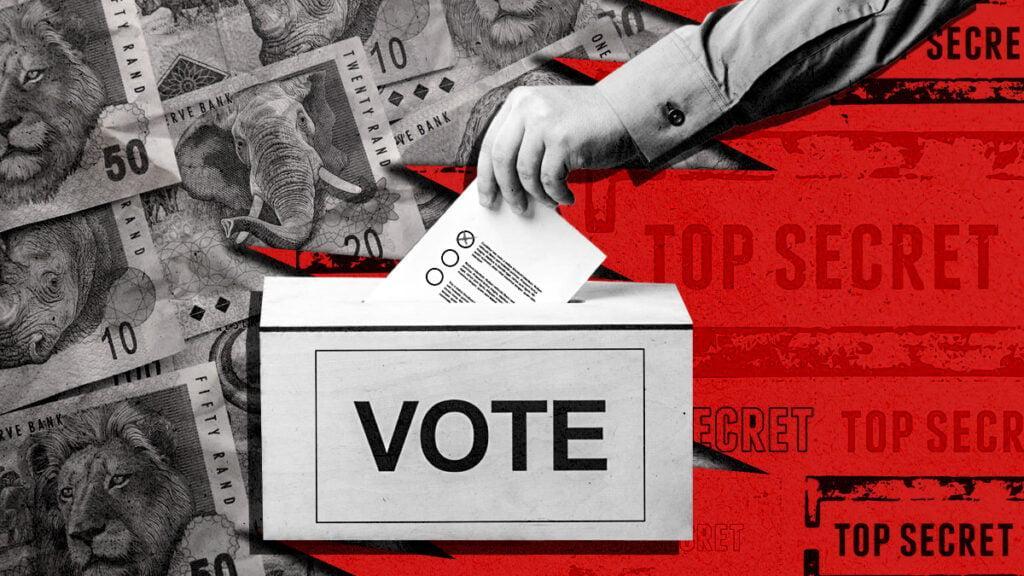Africa-Press – South-Africa. South African political parties declared nearly R231 million in donations during the 2024/25 financial year, as their calls for more leniency over what they disclose gain traction.
According to the Independent Electoral Commission’s (IEC’s) most recently published declarations report, political parties declared R14.19 million in donations during the fourth quarter of 2024/25.
This does not mean that this is the sole funding for all parties, but rather larger contributions that have been disclosed by various registered parties, as required by law.
The IEC noted that this continues a pattern of low contributions outside of election periods.
Only three parties, the African National Congress (ANC), Democratic Alliance (DA), and ActionSA, disclosed their donations for this period.
The ANC received R7 million in declared donations for the quarter. This amount came from two sources: Chancellor House Trust, which donated R4 million, and Naspers Limited, which contributed R3 million.
Chancellor House Trust is a repeat donor, having given a cumulative R11 million to the ANC during the 2024/25 financial year, still within the legal cap of R15 million.
The DA disclosed donations of R6.19 million, sourced from ten donors. The largest contribution came from Naspers, which gave R3 million, followed by an in-kind donation valued at R1.04 million from the Friedrich Naumann Foundation (FNF).
FNF’s in-kind support focused on internal capacity-building, such as training programmes, strategic planning for the finance department.
Additional donations included R743,687 from Main Street 1564, with smaller contributions from Polyoak Packaging, DKS General Industrial Cleaners, and five individual donors.
ActionSA reported a single donation of R1 million, received in March 2025 from the African Equity Corporation (Pty) Ltd.
Note – the list is not exhaustive. Detailed reports can be found here.
Donations set to rise, but transparency to decrease
The Political Party Funding Act (PPFA), enacted in 2018 and enforced from 2021, was designed to promote transparency by regulating how political parties receive public and private funding.
It required disclosure of private donations above R100,000 and capped individual contributions at R15 million per year, while banning donations from foreign governments and state entities.
It also established two key funding mechanisms: the Represented Political Parties Fund and the Multi-Party Democracy Fund (MPDF).
In 2024, the Electoral Matters Amendment Act (EMAA) was passed to accommodate independent candidates, granting them access to public funding via the MPDF and allowing them to contest national and provincial elections.
However, the EMAA controversially removed the PPFA’s disclosure thresholds and donation limits, pending a presidential proclamation that was delayed, creating a legal vacuum for some time until the courts reinforced it.
In a controversial move earlier this year, the National Assembly resolved to raise the minimum disclosure threshold and increase the maximum permissible donation per donor per financial year.
In the event the President implements the resolution of the National Assembly, these amounts are set to rise from R100,000 to R200,000 and from R15 million to R30 million, respectively.
Civil advocacy group My Vote Counts (MVC), which was critical in the establishment of the donations declarations, said that running a political party is costly, but how donation limits are set must be rational and evidence-based.
The Portfolio Committee Chair later claimed the new figures were inflation-based, despite the PBO’s finding that “South Africa… is an outlier with [a] R15 million upper limit.”
Meanwhile, parties cited financial strain to defend higher private limits, even as they approved a budget that “sees no increase in the public funding granted to political parties.”
Donations are expected to rise ahead of the 2026 local government elections, and with the resolution from the NA, transparency in political party funding is set to decrease if the President puts pen to paper.
MVC has called on the President to reject the report and is pursuing legal action, arguing the process is unconstitutional and undermines transparency. “All that stems from it is the fruit of the poisoned tree.”
The organisation has long called for all donations to be required to be disclosed, saying that the act does not require comprehensive disclosure of private donations or impose sufficient controls on private funding.
This is seen in large political parties, like MK and the EFF, which have a very small pool of declared donations compared to others.
Since the start of the 2023/24 financial year, the EFF and MK Party declared a total of R3.2 million and R380,555 worth of private donations, respectively – money that would have been burnt through quickly during the fierce 2024 election campaign.
“We argue that the law in its current form does not go far enough to promote the right of access to information and the exercise of political rights from an informed position,” MVC previously said.
For More News And Analysis About South-Africa Follow Africa-Press






